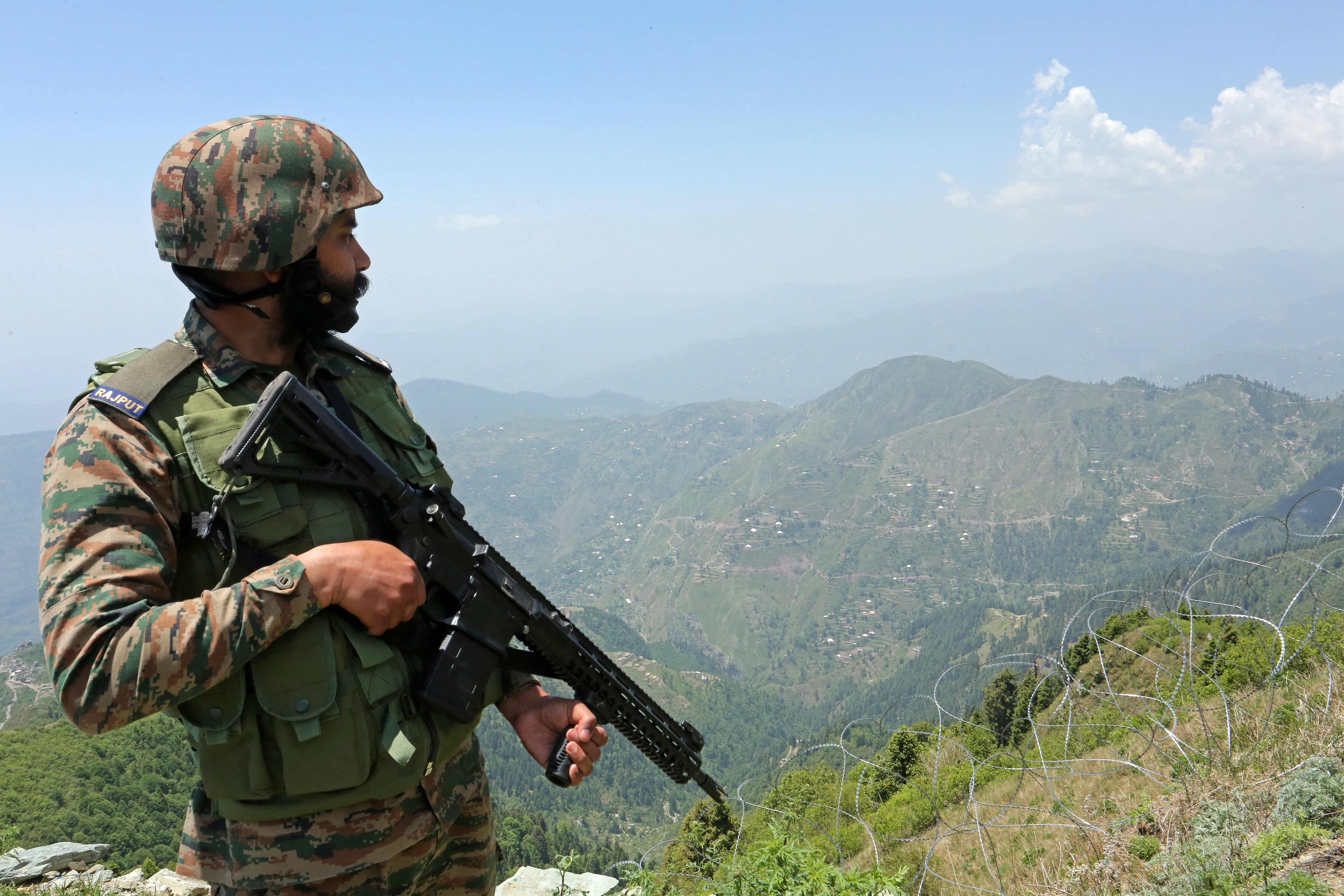India has confirmed for the first time that it lost fighter jets during its brief military conflict with Pakistan earlier in May, though the country still refuses to clarify the number or nature of aircraft it lost.
New Delhi and Islamabad stepped back from the brink of all-out war following their worst military escalation in decades, which resulted in the deaths of dozens of civilians in cross-border shelling, as well as drone attacks by both sides.
Pakistan’s military claimed it shot down six Indian Air Force jets, including three French-made Rafale aircraft, during the initial clashes. Both India and Pakistan claimed to have downed each other’s fighter jets in a dogfight that reportedly involved over 125 aircraft, making it the largest aerial battle since the Second World War.
General Anil Chauhan, India’s chief of defence staff, admitted India suffered initial losses in the air, but declined to give details.
“What is important is that… not the jet being downed, but why they were being downed,” he told Bloomberg TV on the sidelines of the Shangri-La Dialogue in Singapore.
However, he said Pakistan’s claims of downing six Indian warplanes were “absolutely incorrect”.

“The good part is that we are able to understand the tactical mistake which we made, remedy it, rectify it, and then implement it again after two days and flew all our jets again, targeting at long range,” Gen Chauhan said.
In separate remarks to Reuters in Singapore he said that after rectifying tactics, “we went back on the 7th, 8th and 10th in large numbers to hit air bases deep inside Pakistan, penetrated all their air defences with impunity, carried out precision strikes”.
The Indian air force “flew all types of aircraft with all types of ordinances on the 10th”, he said.
India has previously said its missiles and drones struck at least eight Pakistani air bases across the country that day, including one near the capital Islamabad.

India’s director general of air operations, Air Marshal AK Bharti, had told a press conference earlier in the month that “losses are a part of combat” and that India had downed some Pakistani jets. Islamabad has denied it suffered any losses of planes but has acknowledged its air bases suffered some hits, describing the impact as minimal.
Some of the attacks were reportedly against bases near Pakistan’s nuclear facility in Kirana Hills of Punjab province, but the Indian military has said the facility itself was not targeted. “Most of the strikes were delivered with pinpoint accuracy, some even to a metre, to whatever was our selected mean point of impact,” Gen Chauhan said.
Gen Chauhan and Pakistan’s chairman of the joint chiefs of staff, General Sahir Shamshad Mirza, have both said there was no danger at any time during the conflict that nuclear weapons were considered.
“I think there’s a lot of space before that nuclear threshold is crossed, a lot of signalling before that, I think nothing like that happened,” Gen Chauhan said. “There’s a lot of space for conventional operations which has been created, and this will be the new norm.”
“It’s my personal view that the most rational people are people in uniform when conflict takes place,” he added. “During this operation, I found both sides displaying a lot of rationality in their thoughts as well as actions. So why should we assume that in the nuclear domain there will be irrationality on someone else’s part?”
The conflict began after India struck alleged militant hideouts in Pakistan and Pakistan-administered Kashmir to avenge the deaths of 26 people, mostly Hindu tourists, killed in a terror attack in India-administered Kashmir on 22 April.
New Delhi accused Pakistan of backing the gunmen who carried out the massacre. Islamabad denied the charge and sought an independent investigation.
The Indian strikes escalated the tensions into a military conflict as the two sides exchanged heavy fire along their de facto border in the restive Kashmir region as well as missile and drone strikes on military installations.
The Indian military claimed to have killed nearly 100 militants with its overnight strikes and 35-40 personnel of Pakistan’s armed forces in subsequent action along the de facto border.
The Pakistani army said on Tuesday that the clash with India had left 11 soldiers and 40 civilians dead. A Pakistani minister last week claimed their armed forces had killed 40-50 Indian soldiers.
The intense four-day period of fighting came to a halt with a ceasefire announced by both governments following talks between their national security advisers. US president Donald Trump has claimed credit for brokering the truce, though Indian officials have quietly rowed back against the idea that his intervention was pivotal.

